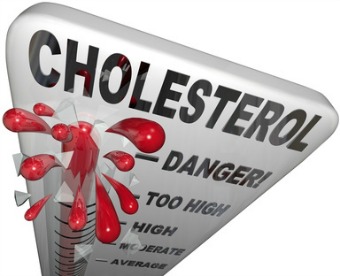Q: Is anxiety a common phenomenon? How can one differentiate anxiety from other feelings?
Anxiety is a common emotional reaction to stressors, either outer or inner. We all experience anxiety in its various forms throughout different life events, such as the loss of a job or a loved one. We may also experience it routinely, for instance before giving a presentation to a potential client, or in a public situation. Anxiety also manifests in a variety of “happy” events such as anticipating the call of a loved one.
Q: When does anxiety evolve from simple worries to becoming a disorder?
If the anxiety you feel starts to feel overwhelming and is impacting your daily life negatively, you may be suffering from an anxiety disorder.
If you suffer from panic attacks, obsessive thoughts, unrelenting worries, or an incapacitating phobia you may be suffering from an anxiety disorder.
There are many types of anxiety disorders, such as: Obsessive Compulsive Disorder, Post Traumatic Stress Disorder, Social Anxiety Disorder, Specific Phobias, Generalized Anxiety Disorder, as well as Panic Disorders.
Q: What is the relation between a Panic Disorder and a Panic Attack?
Panic disorder is a serious condition that strikes without reason or warning. Symptoms of a panic disorder include sudden attacks (often called panic attacks) of fear and nervousness, as well as physical symptoms such as sweating and a racing heart.
During a panic attack the fear response is out of proportion for the situation, which often is not threatening. Over time, a person with panic disorder can develop a constant fear of having another panic attack, which can affect daily functioning and general quality of life.
Q: What are the classic symptoms during a panic attack?During a panic attack, most patients experience some, or all of these symptoms:
Difficulty breathing.
Pounding heart or chest pain.
Intense feeling of dread.
Sensation of choking or smothering.
Dizziness or feeling faint.
Trembling or shaking.
Sweating
Nausea or stomachache.
Tingling or numbness in the fingers and toes.
Chills or hot flashes.
A fear that you are losing control or are about to die.
Anxiety is a common emotional reaction to stressors, either outer or inner. We all experience anxiety in its various forms throughout different life events, such as the loss of a job or a loved one. We may also experience it routinely, for instance before giving a presentation to a potential client, or in a public situation. Anxiety also manifests in a variety of “happy” events such as anticipating the call of a loved one.
Q: When does anxiety evolve from simple worries to becoming a disorder?
If the anxiety you feel starts to feel overwhelming and is impacting your daily life negatively, you may be suffering from an anxiety disorder.
If you suffer from panic attacks, obsessive thoughts, unrelenting worries, or an incapacitating phobia you may be suffering from an anxiety disorder.
There are many types of anxiety disorders, such as: Obsessive Compulsive Disorder, Post Traumatic Stress Disorder, Social Anxiety Disorder, Specific Phobias, Generalized Anxiety Disorder, as well as Panic Disorders.
Q: What is the relation between a Panic Disorder and a Panic Attack?
Panic disorder is a serious condition that strikes without reason or warning. Symptoms of a panic disorder include sudden attacks (often called panic attacks) of fear and nervousness, as well as physical symptoms such as sweating and a racing heart.
During a panic attack the fear response is out of proportion for the situation, which often is not threatening. Over time, a person with panic disorder can develop a constant fear of having another panic attack, which can affect daily functioning and general quality of life.
Q: What are the classic symptoms during a panic attack?During a panic attack, most patients experience some, or all of these symptoms:
Difficulty breathing.
Pounding heart or chest pain.
Intense feeling of dread.
Sensation of choking or smothering.
Dizziness or feeling faint.
Trembling or shaking.
Sweating
Nausea or stomachache.
Tingling or numbness in the fingers and toes.
Chills or hot flashes.
A fear that you are losing control or are about to die.













